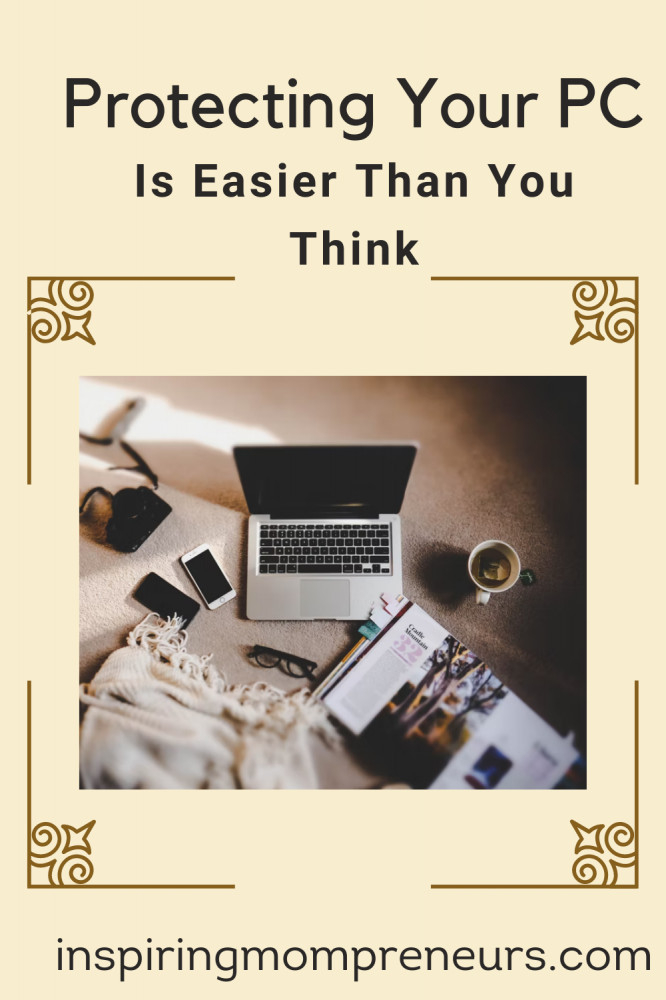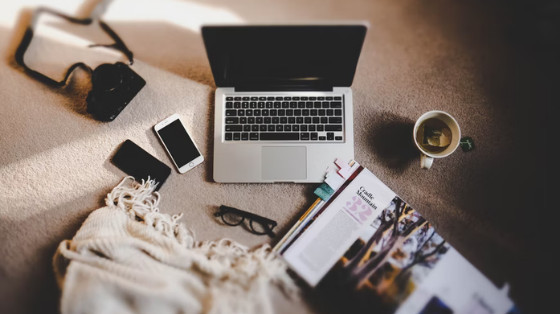In today’s post, we are sharing a few useful tips for protecting your PC. Whether you’re using your computer for work purposes or as a personal device, there’s a chance that you’ve probably encountered some kind of shady activity on the internet or through the programs you’ve downloaded. Maybe it’s a suspicious program that you’re not sure of, or perhaps you saw some kind of weird error and you’re curious as to how it came up in the first place. These kinds of concerns are very normal, especially if you’re not well-versed with technology or how to use a computer other than performing your typical work-related functions.
So in this post, we’re going to offer a bit of advice on how to better protect your PC and why it’s a lot easier these days than before.
4 Best Tips For Protecting Your PC
There are several things that you can do to protect your work or home PC to ensure it stays virus-free and in good working condition.
1. Preventing viruses and malware from getting on your PC
These days, it’s fairly common for the programs we use to have some kind of built-in software protection. For instance, Google Chrome has built-in security that checks files before we download them.
This helps to ensure that we don’t accidentally download something that is infected, such as a virus or a piece of malware. Since these defenses exist, it’s actually fairly difficult for us to get a virus these days unless you’re trying really hard to find some shady underground website.
However, something may slip through the cracks every now and then. After all, Google Chrome is not a virus scanning and deletion program. It’s not built for that purpose although it does have some basic protection.
A recent and advanced virus could make its way into a piece of software that you download from a client or for work purposes. For this situation, Google Chrome and other similar programs won’t have any defense against it because it’s too recent.
The Importance of Having an Anti-Virus Program
This means that you can end up unwillingly downloading some kind of virus without knowing it. As such, it’s still important for many of us to use anti-virus programs and firewalls to help protect us. They can provide a shield that identifies any suspicious activity, and then it’ll alert us and immediately perform an action to deal with it.
But in addition to active protection, we can also do a few other things to prevent us from getting viruses and malware on our PCs.
2. Be Vigilant
A good start to this would be learning to identify when something on the internet is a little shady. This could mean always using official websites when possible and only downloading things once they have been thoroughly scanned.
3. Using a PC Cleaning Tool
You could also benefit from using a cleaning tool such as Clean My Mac X. These kinds of programs are fantastic for helping you clear up unnecessary files which can teach you better habits when it comes to handling files. While it might not help you clear up a virus, it can ensure that your computer will continue running smoothly despite whatever programs you download or things you use your PC for. It’s basic maintenance that will go a long way.
4. Protecting Your PC or Laptop Physically
Lastly, let’s not forget that you also need to protect your laptop physically and not just with software and apps. It’s a tech problem that is usually forgotten about because people don’t really keep things in mind like accidentally knocking on their computer or damaging it for whatever reason. In most cases, laptops are generally the more vulnerable type of computer because we tend to put them in our bags and carry them with us.
We also tend to bring it to public workplaces such as a coffee shop or a co-working space. These kinds of situations can be dangerous not just because you might damage your laptop by accident, but because it can be stolen or even tampered with if you’re not careful. It’s a good idea to protect your computer from physical threats like this by paying more attention to where you use it and how you transport it.
Another common physical-related problem is the use of your peripherals. A great example of this would be your USB ports. Many people accidentally try to plug in their ports the wrong way, or they might jam connections in too tightly. This can cause damage to the socket but also the device that you’re trying to plug in. This can also happen with your headphones and it might cause problems with things like display cables too. It’s a good idea to be as careful as possible when plugging things in to ensure that there’s less chance of you breaking something.
Conclusion
We hope these tips for protecting your PC have been useful and that you will incorporate them in future to keep your PC virus-free and in good working condition.



